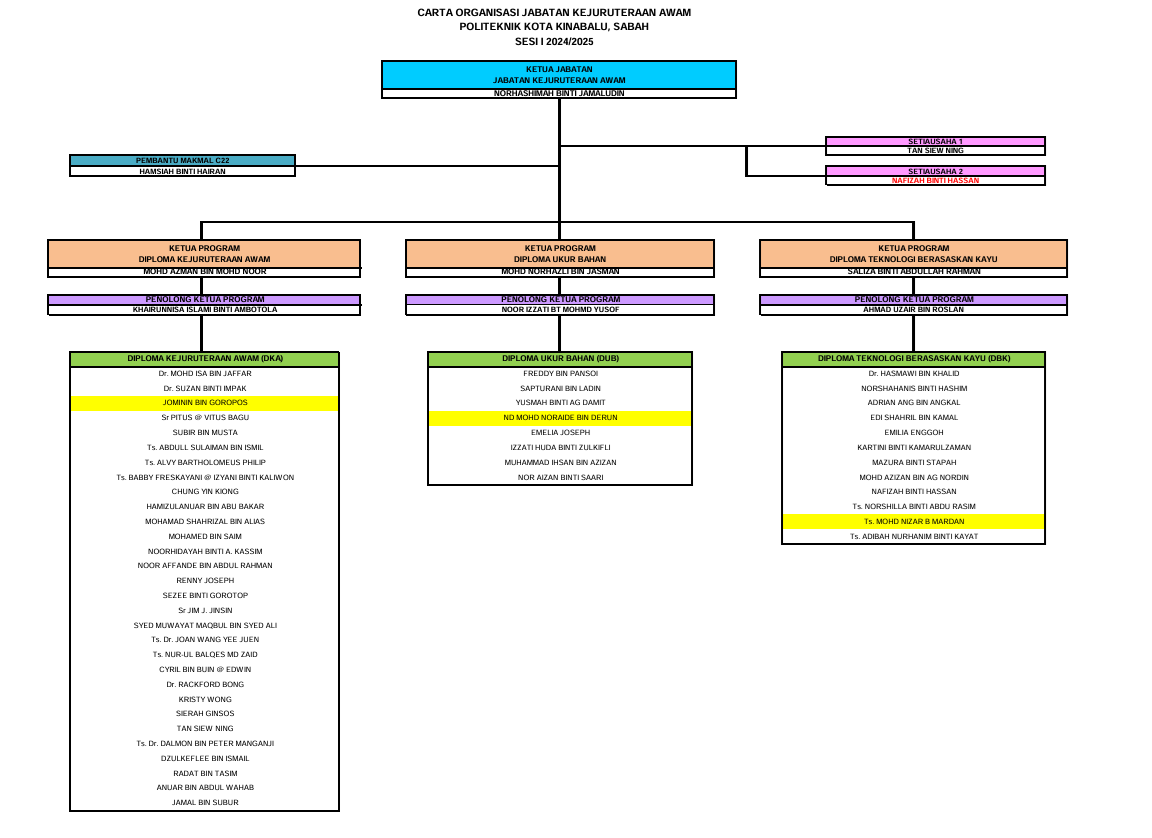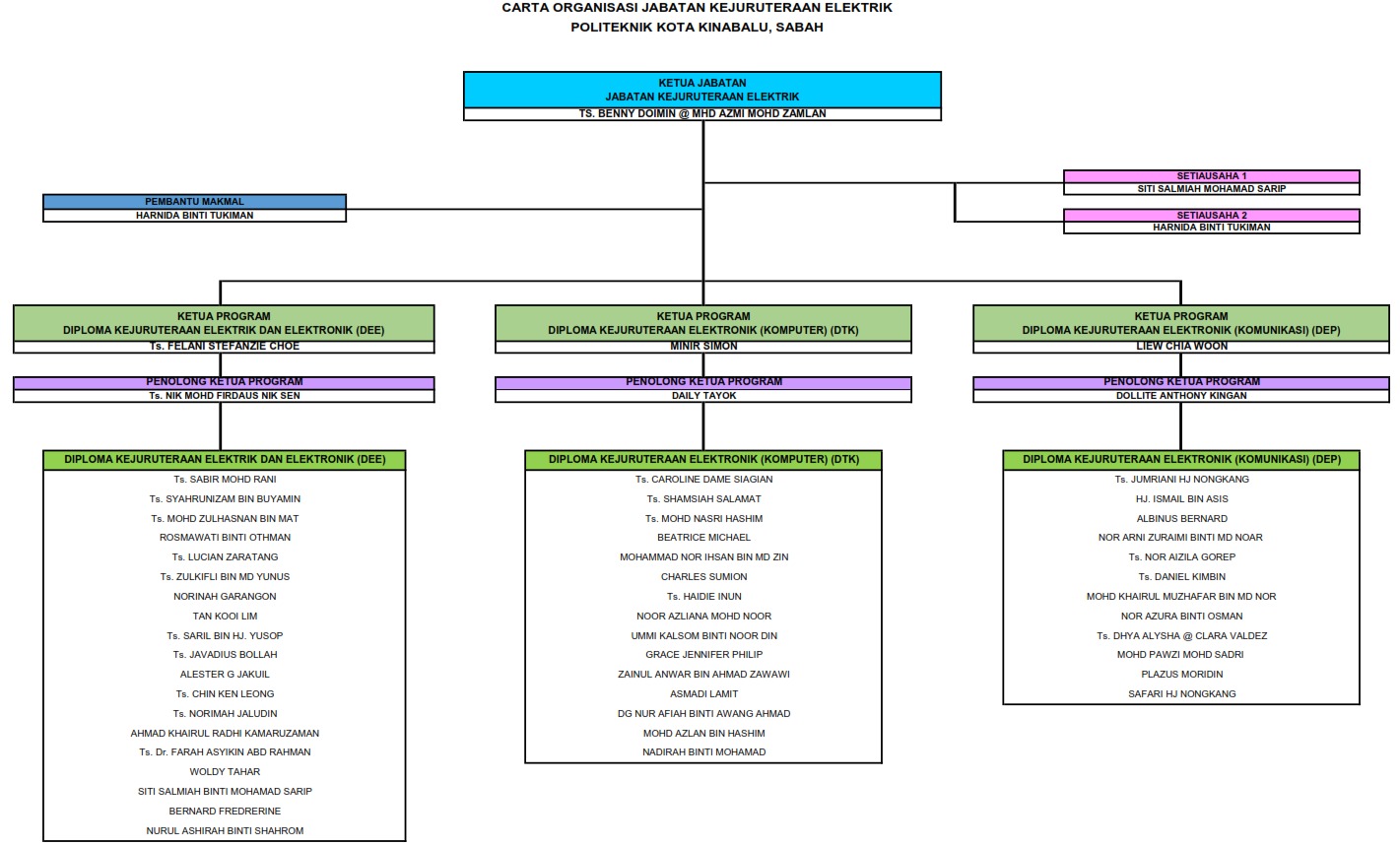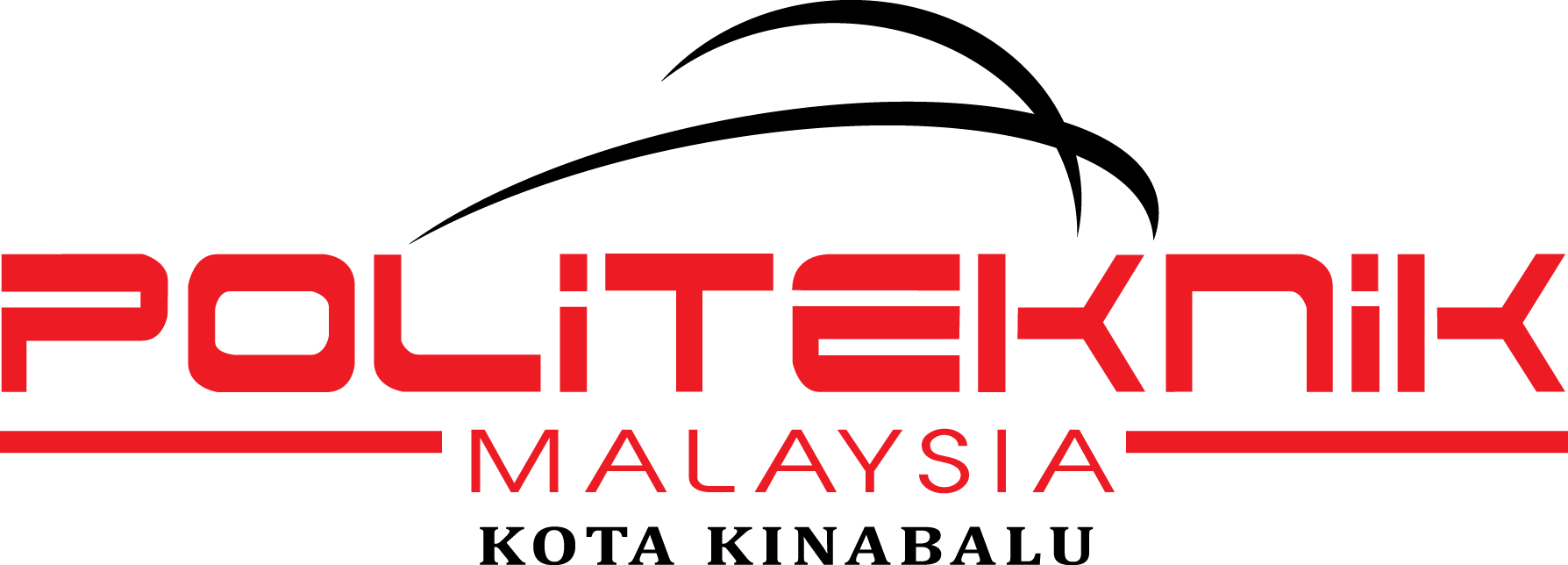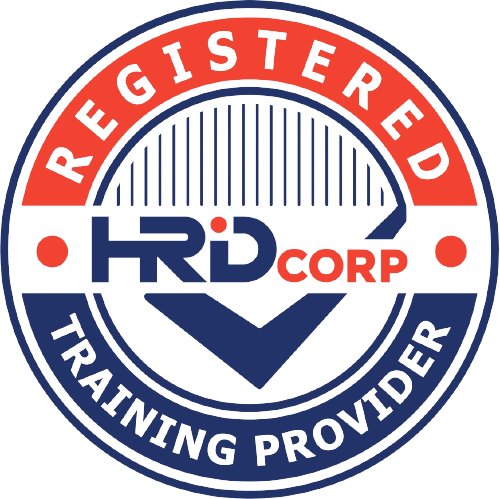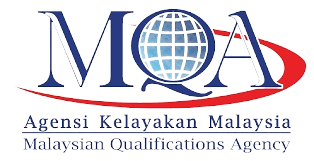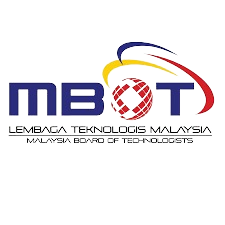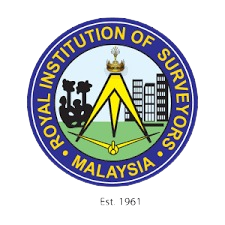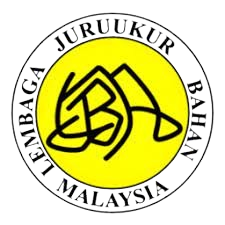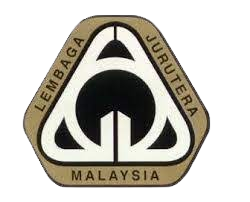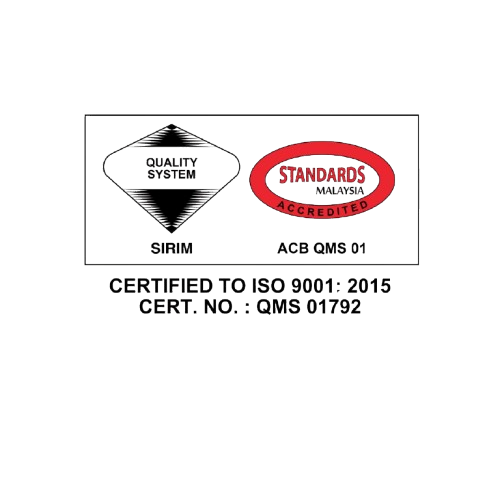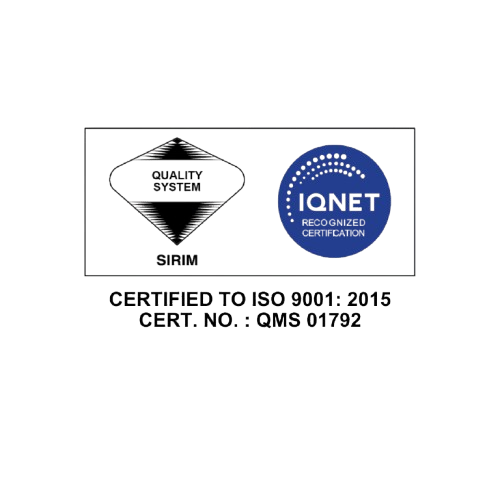- Details
- Hits: 8849
JABATAN KEJURUTERAAN AWAM
Pengenalan Jabatan
Jabatan Kejuruteraan Awam (JKA), Politeknik Kota Kinabalu merupakan jabatan akademik yang diterajui oleh Ketua Jabatan dengan kekuatan 60 orang staf akademik. JKA berperanan penting dalam memberikan pendedahan ilmu bidang kejuruteraan kepada pelajar bagi melahirkan graduan separa professional yang berketrampilan dan berdaya saing.
Proses pengajaran dan pembelajaran dijalankan secara teori dan praktikal, merangkumi tiga bidang utama di JKA iaitu Kejuruteraan Awam, Ukur Bahan dan Teknologi Berasaskan Kayu. Kemudahan infrastruktur seperti bengkel kejuruteraan, makmal kejuruteraan, makmal komputer dan studio disediakan bagi memudahkan proses pengajaran dan pembelajaran berorientasikan sistem Outcome Based Education (OBE).
JKA komited dalam melahirkan graduan politeknik sebagai peneraju latihan dan pendidikan teknikal dan vokasional (TVET) yang bakal mengemudi Malaysia menjadi negara maju.
Program-program yang ditawarkan di Jabatan Kejuruteraan Awam adalah:
- Diploma Kejuruteraan Awam (DKA) / Diploma in Civil Engineering (DKA)
- Diploma Ukur Bahan (DUB) / Diploma in Quantity Surveying (DUB)
- Diploma Teknologi Berasaskan Kayu (DBK) / Diploma in Wood-Based Technology (DBK)
Kurikulum
- Jabatan Kejuruteraan Awam menggunakan kurikulum yang sama seperti semua Politeknik Kementerian Pendidikan Malaysia (Pendidikan Tinggi).
- Kursus terdiri daripada kursus umum, kursus teras dan kursus elektif mengikut bidang Awam, Ukur bahan dan Teknologi Berasakan Kayu.
Tempoh Pengajian
3 Tahun (6 Semester)
DKA
|
ACCREDITATION CODE |
BEM/ETAD/02/83/DA/01-00-107(001) |
||||||||||||||||||||||||
|
INTRODUCTION |
Diploma in Civil Engineering provides knowledge, skills and attitude to adapt to new technology in civil engineering with the ability to demonstrate professionalism and work ethics in fulfilling responsibilities towards the creator, client and society. This program provides theory as well as carry out practical work. This program also offers courses in Civil Engineering fields such as Engineering Graphics, Water and Water Resources Engineering, Environment, Strength and structural Design, Road and transportation, Engineering Management and Geotechnics. This program is specially designed with hands-on training in addition to the theoretical learning in civil engineering. Students are required to complete the industrial training to prepare them as graduates for employment in different sectors of the industry whereby the skills and knowledge acquired are used throughout modern industry. They will be able to use appropriate communication and interpersonal skills to perform tasks in various situations. Graduates will demonstrate the desired behavioural traits like integrity, team work, problem solving and passion in performing tasks related to their area of specialization. They will possess entrepreneurial skills to contribute to the economic growth for the nation’s development in the construction industries. With these additional skills, they will be more competitive in the present job market. |
||||||||||||||||||||||||
|
SYNOPSIS |
This programme is designed to equip students with sound knowledge, skills and attitude and understanding of the environment, construction industries, construction designs and infrastructural development of civil engineering. The knowledge and skills acquired will be useful for success in future or current employment. |
||||||||||||||||||||||||
|
PROGRAM AIMS |
This programme believes that all individuals have the potential to be proactive and responsible senior technicians to support the national agenda in transforming the construction industry to be highly productive environmentally sustainable with globally competitive players while focused on safety and quality standards. |
||||||||||||||||||||||||
|
PROGRAMME EDUCATIONAL OBJECTIVES (PEO) The Diploma in Civil Engineering programme shall produce semi-professionals who are:
|
|||||||||||||||||||||||||
|
PROGRAMME LEARNING OUTCOMES (PLO) Upon completion of the programme, students should be able to:
|
|||||||||||||||||||||||||
|
JOB PROSPECT |
The knowledge and skills that the students acquire from the program will enable them to participate in the job market such as specified as:
|
||||||||||||||||||||||||
|
ENTRY REQUIREMENTS |
The general minimum requirement for student entry: 1) Malaysian 2) Passed “Sijil Pelajaran Malaysia” (SPM) or equivalent qualification with the minimum requirement as follow:
3) Candidates are not colour blind and physically handicapped, which will complicate practical assignments. |
DBK
|
ACCREDITATION CODE |
(MBOT/FA/ME/0/01/0105) |
||||||||||||||||
|
INTRODUCTION |
Wood industry has indicated an encouraging performance and has been the among the top important main commodity sector in Malaysia. This sector also gives a wide range of job opportunities in various categories. Diploma in Wood Based Technology is highly anticipated to produce sub-professional graduates to contribute in wood industry. This program will prepare students with knowledge of product design, current and future technology in wood industry, wood science, wood engineering and management. This program also takes into account the aspect of human resource development as one of the critical elements that need to be emphasize, in order to enhance wood industry productivity, efficiency, effectiveness, quality and value-added product. Students are prepared for their future role in the economy by building a solid foundation in technical knowledge and the necessary skills, related to the field of wood technology. |
||||||||||||||||
|
SYNOPSIS |
|
||||||||||||||||
|
PROGRAM AIMS |
This programme believes that every individual has potential to foster talent can be developed through structured educational approach to nurture creative and competent wood technologist for product development in wood-based technology to support the sustainable development for wood industry in Malaysia |
||||||||||||||||
|
PROGRAMME EDUCATIONAL OBJECTIVES (PEO) The Diploma in Wood Based Technology programme shall produce balance TVET graduates who:
|
|||||||||||||||||
|
PROGRAMME LEARNING OUTCOMES (PLO) Upon completion of the programme, students should be able to:
|
|||||||||||||||||
|
JOB PROSPECT |
Wood Based Technology programme can also be applied to a broad range of careers. The knowledge and skills that the students acquire from this programme will enable them to participate in the job market such as:
|
||||||||||||||||
|
ENTRY REQUIREMENTS |
Graduate of SPM
Graduates other than SPM
https://ambilan.mypolycc.edu.my/portalbpp2/index.asp?pg=program&kat=d&id=DA003 |
DUB
|
ACCREDITATION CODE |
MQA: MQA/FA03257 |
||||||||||||||||
|
INTRODUCTION |
Quantity surveying is the field of study involving directly in financial management and construction contract of administration from the initial stage to the completion. A part of that, it also involving in consultation services of project cost, selection of contract, measurement of quantities, preparation of tender document and project management. Diploma in Quantity Surveying programme is conducted to produce assistant quantity surveying graduates with knowledge, skills and attitude regarded to be a launch pad to future career progression and graduate employability. Three-year full-time programme comprising of six semesters course work which in includes with one full semester of industrial training. Students are prepared for their future role in the industry by building a solid foundation in technical knowledge and skills, related to the quantity surveying field. |
||||||||||||||||
|
SYNOPSIS |
The Diploma in Quantity Surveying programme is designed to cover the broad discipline of quantity surveying. The broad-based quantity surveying foundation includes cost estimation, tender, professional practise, quantity measurement, construction technology, project management, construction economic and construction law. The knowledge and skills covered would provide graduates with a wider range of employment opportunities. Apart from the technical knowledge and skills, the programme also emphasizes on the development of the individual potential of students in an integrated and holistic manner through courses such as Islamic studies, moral studies, co-curriculum, soft skills and entrepreneurship. |
||||||||||||||||
|
PROGRAMME AIMS |
This programme believes that every individual has potential to be precise and adaptable Assistant Quantity Surveyor practitioner supporting government to stimulate economic growth by improving worker numbers across all sectors including construction. |
||||||||||||||||
|
The Diploma in Quantity Surveying programme shall produce balance TVET graduates who are:
|
|||||||||||||||||
|
Upon completion of the programme, students should be able to:
|
|||||||||||||||||
|
JOB PROSPECT |
This programme provides the knowledge and skills in Quantity Surveying which can be applied to a broad range of careers. The knowledge and skills that the students acquire from the programme will enable graduates to participate in the job market as:
|
||||||||||||||||
| ENTRY REQUIREMENTS |
For more information regarding the admission requirements for the Malaysian Polytechnic Program, please refer portal Ambilan Pelajar Mypolycc at https://ambilan.mypolycc.edu.my/portalbpp2/index.asp?pg=program&kat=d&id=DA006 |
DKA 2024
DIPLOMA IN CIVIL ENGINEERING (DKA)
|
ACCREDITATION CODE |
MQA/FA 13176 |
||||||||||||||||||||||
|
INTRODUCTION |
Diploma in Civil Engineering provides knowledge, skills and attitude to adapt to new technology in Civil Engineering with the ability to demonstrate professionalism and work ethics in fulfilling responsibilities towards the creator, client and society. This programme provides theory as well as carries out practical work. This programme also offers courses in Civil Engineering area such as Engineering Graphics, Water & Water Resources Engineering, Environment, Strength & Structural Design, Road & Transportation, Engineering Management and Geotechnics. This programme is specially designed with hands-on training in addition to the theoretical learning in civil engineering. They are required to complete the industrial training to prepare graduates for employment in different sectors of the industry because the skills and knowledge acquired are used throughout modern industry. They will be able to use appropriate communication and interpersonal skills to perform tasks in various situations. Graduates will demonstrate desired behavioural traits like integrity, teamwork, problem solving and passion in performing the tasks related to their area of specialization. They will possess entrepreneurial skills to contribute to the economic growth for the nation’s development in the construction industries. With these additional skills, they will be more competitive in the present job market. |
||||||||||||||||||||||
|
SYNOPSIS |
This programme is designed to equip students with sound knowledge, skills, attitude and understanding of the environment, construction industries, construction designs and infrastructural development of Civil Engineering. The knowledge and skills acquired will be useful for success in future or current employment. |
||||||||||||||||||||||
|
PROGRAM AIMS |
This programme believes that all individuals have potential to be proactive and responsible senior technicians to support national agenda in transforming construction industry to be highly productive, environmentally sustainable with globally competitive players while focused on safety and quality standards. |
||||||||||||||||||||||
|
PROGRAMME EDUCATIONAL OBJECTIVES (PEO) |
The Diploma in Civil Engineering programme shall produce semi-professionals who are:
|
||||||||||||||||||||||
|
PROGRAMME LEARNING OUTCOMES (PLO) |
Upon completion of the programme, students should be able to:
*Represented by the 17 UN Sustainable Development Goals (UN-SDG)
|
||||||||||||||||||||||
|
JOB PROSPECT |
The knowledge and skills that the students acquire from the program will enable them to participate in the job market such as specified as: a. Technical Assistant b. Site Supervisor c. Inspector of Work d. Assistant Engineer e. Contractor f. Health and Safety Officer g. Research Assistant h. Quality Control Assistant Engineer i. Material Coordinator j. Entrepreneur
|
||||||||||||||||||||||
|
ENTRY REQUIREMENT |
For more information regarding the admission requirements for the Malaysian Polytechnic Program, please refer portal Ambilan Pelajar Mypolycc at https://ambilan.mypolycc.edu.my/portalbpp2/index.asp?pg=program&kat=d&id=DA001 |
- Details
- Hits: 9854
JABATAN KEJURUTERAAN ELEKTRIK
Pengenalan Jabatan
Jabatan Kejuruteraan Elektrik (JKE) merupakan salah satu dari 5 jabatan induk yang terdapat di Politeknik Kota Kinabalu (PKK), Sabah. JKE, PKK menawarkan peluang kepada pelajar untuk menerokai bidang kejuruteraan elektrik, elektronik, komunikasi dan komputer. Matlamat jabatan ini adalah untuk menghasilkan graduan-graduan berkualiti dan berketrampilan bagi memenuhi keperluan teknologi terkini dan menjana perkembangan industri negara. Pendekatan yang digunakan dalam proses Pengajaran dan Pembelajaran adalah secara teori dan praktikal yang berorientasikan sistem Outcome Based Education (OBE) iaitu pembelajaran berpusatkan kepada pelajar dan menitikberatkan dapatan daripada hasil pembelajaran dan bukan sekadar objektif pengajaran semata-mata dengan kemudahan infrastuktur seperti bengkel, makmal dan bilik kuliah dikukuhkan lagi dengan pendedahan pengalaman alam pekerjaan yang sebenar iaitu Latihan Industri (LI) yang dilaksanakan secara berstruktur bersama rakan industri.
JKE, PKK di terajui oleh seorang Ketua Jabatan dan dibantu dengan tiga orang Ketua Program merujuk kepada program masing-masing.
JKE, PKK mempunyai kekuatan tenaga kerja yang terdiri daripada pelbagai latar belakang akademik dan kemahiran. Pengambilan pelajar diadakan setiap semester iaitu setiap 6 bulan sekali berdasarkan kepada tiga program.
Program-program yang ditawarkan di Jabatan Kejuruteraan Elektrik adalah:
- Diploma Kejuruteraan Elektrik & Elektronik (DEE) / Diploma in Electrical and Electronic Engineering (DEE)
- Diploma Kejuruteraan Elektronik (Komunikasi) (DEP) / Diploma in Electronic Engineering (Communication) (DEP)
- Diploma Kejuruteran Elektronik (Komputer) (DTK) / Diploma in Electronic Engineering (Computer) (DTK)
Kurikulum
- Jabatan Kejuruteraan Elektrik menggunakan kurikulum yang sama seperti semua Politeknik Kementerian Pendidikan Malaysia (Pendidikan Tinggi).
- Kursus terdiri daripada kursus umum, kursus teras dan kursus elektif mengikut bidang Elektrik dan Elektronik, Elektronik (Komunikasi) dan Elektronik (Komputer)
Tempoh Pengajian
3 Tahun (6 Semester)
DEE
|
ACCREDITATION CODE |
MQA/FA9422 |
||||||||||||||||||||||||
|
INTRODUCTION |
Electrical engineering is the field of study which generally deals with the application of electrical and electronics towards designing, testing and development of circuitry and equipment for well-defined engineering activities. It requires the application of scientific and engineering knowledge and methods combined with practical skills in supporting well-defined engineering activities to prepare students for their future role in the industry. The electrical engineering diploma graduates of the Polytechnic’s Ministry of Higher Education are exposed to a comprehensive curriculum consisting of courses in personal development, mathematics, science, electrical disciplines and workplace competencies requirements. Graduates of the electrical engineering diploma programme will be equipped with specialized knowledge and skills which include power engineering, green technology, energy efficiency, computer technology, communication, medical electronics, optoelectronic and industrial automation. The Diploma in Electrical and Electronic Engineering is a three-year full-time programme comprising of five semesters coursework with one full semester of industrial training. |
||||||||||||||||||||||||
|
SYNOPSIS |
The Diploma in Electrical and Electronic Engineering programme is designed to cover the broad discipline of electrical and electronic engineering which includes electrical and electronic principles, computer fundamental and programming, computer aided design, semiconductor devices, communication systems, wiring installation, power system, electrical machine and programmable logic controller. The green technology elements are also incorporate in the curriculum to provide awareness towards the importance of the sustainable energy. |
||||||||||||||||||||||||
|
PROGRAMME AIMS |
This programme believes that all individuals have potential to be a resourceful and adaptable technician to support the nation aspiration in providing engineering talent |
||||||||||||||||||||||||
|
The engineering programme should produce balanced TVET graduates who are:
|
|||||||||||||||||||||||||
|
Upon completion of the programme, students should be able to:
Notes: DK 1: A descriptive, formula-based understanding of the natural sciences applicable in a sub-discipline DK 2: Procedural mathematics, numerical analysis, statistics applicable in a subdiscipline DK 3: A coherent procedural formulation of engineering fundamentals required in an accepted sub-discipline DK 4: Engineering specialist knowledge that provides the body of knowledge for an accepted sub-discipline DK 5: Knowledge that supports engineering design based on the techniques and procedures of a practice area DK 6: Codified practical engineering knowledge in recognised practice area DK 7: Knowledge of issues and approaches in engineering technician practice: ethics, financial, cultural, environmental and sustainability impacts |
|||||||||||||||||||||||||
|
JOB PROSPECT |
This programme provides the knowledge and skills in electrical engineering that can be applied to a broad range of careers in most power generation provider and manufacturing industries. The knowledge and skills that the students acquire from the programme will enable them to participate in the job market as:
|
||||||||||||||||||||||||
|
ENTRY REQUIREMENTS |
For more information regarding the admission requirements for the Malaysian Polytechnic Program, please refer portal Ambilan Pelajar Mypolycc at https://ambilan.mypolycc.edu.myhttps://ambilan.mypolycc.edu.my/portalbpp2/index.asp?pg=program&kat=d&id=DE007 |
DTK
|
ACCREDITATION CODE |
MQA/FA13235 |
||||||||||||||||||||||||
|
INTRODUCTION |
Electrical engineering is the field of study which generally deals with the application of electrical and electronics towards designing, testing and development of circuitry and equipment for well-defined engineering activities. It requires the application of scientific and engineering knowledge and methods combined with practical skills in supporting well-defined engineering activities to prepare students for their future role in the industry. The electrical engineering diploma graduates of the Polytechnic’s Ministry of Higher Education are exposed to a comprehensive curriculum consisting of courses in personal development, mathematics, science, electrical disciplines and workplace competencies requirements. Graduates of the electrical engineering diploma programme will be equipped with specialized knowledge and skills which include power engineering, green technology, energy efficiency, computer technology, communication, medical electronics, optoelectronic and industrial automation. The Diploma in Electronic Engineering (Computer) is a three-year full-time programme comprising of five semesters coursework with one full semester of industrial training. |
||||||||||||||||||||||||
|
SYNOPSIS |
The Diploma in Electronic Engineering (Computer) covers broad discipline of electronics engineering, with specialization in computer technology which includes electrical and electronic fundamentals, computer fundamentals and programming, semiconductor devices and computer aided design while emphasizing the area of specialization. The specialization courses include microprocessor fundamental, computer architecture and organization, database system, operating system, internet based controller, computer diagnosis and maintenance, CMOS IC design and fabrication and project. |
||||||||||||||||||||||||
|
PROGRAMME AIMS |
This programme believes that all individuals have potential to be a resourceful and adaptable technician to support the nation aspiration in providing engineering talent |
||||||||||||||||||||||||
|
The engineering programme should produce balanced TVET graduates who are:
|
|||||||||||||||||||||||||
|
Upon completion of the programme, students should be able to:
Notes: DK 1: A descriptive, formula-based understanding of the natural sciences applicable in a sub-discipline DK 2: Procedural mathematics, numerical analysis, statistics applicable in a subdiscipline DK 3: A coherent procedural formulation of engineering fundamentals required in an accepted sub-discipline DK 4: Engineering specialist knowledge that provides the body of knowledge for an accepted sub-discipline DK 5: Knowledge that supports engineering design based on the techniques and procedures of a practice area DK 6: Codified practical engineering knowledge in recognised practice area DK 7: Knowledge of issues and approaches in engineering technician practice: ethics, financial, cultural, environmental and sustainability impacts |
|||||||||||||||||||||||||
|
JOB PROSPECT |
This programme provides the knowledge and skills in electronics engineering that can be applied to a broad range of careers related to computer technology. The knowledge and skills that the students acquire from the programme will enable them to participate in the job market as:
|
||||||||||||||||||||||||
|
ENTRY REQUIREMENTS |
For more information regarding the admission requirements for the Malaysian Polytechnic Program, please refer portal Ambilan Pelajar Mypolycc at |
DEP
|
ACCREDITATION CODE |
MQA/FA13177 |
||||||||||||||||||||||||
|
INTRODUCTION |
Electrical engineering is the field of study which generally deals with the application of electrical and electronics towards designing, testing and development of circuitry and equipment for well-defined engineering activities. It requires the application of scientific and engineering knowledge and methods combined with practical skills in supporting well-defined engineering activities to prepare students for their future role in the industry. The electrical engineering diploma graduates of the Polytechnic’s Ministry of Higher Education are exposed to a comprehensive curriculum consisting of courses in personal development, mathematics, science, electrical disciplines and workplace competencies requirements. Graduates of the electrical engineering diploma programme will be equipped with specialized knowledge and skills which include power engineering, green technology, energy efficiency, computer technology, communication, medical electronics, optoelectronic and industrial automation. The Diploma in Electronic Engineering (Communication) is a three-year full-time programme comprising of five semesters coursework with one full semester of industrial training. |
||||||||||||||||||||||||
|
SYNOPSIS |
The Diploma in Electronic Engineering (Communication) covers broad discipline of electronics engineering, with specialization in communication technology which includes, electrical and electronic fundamentals, computer fundamentals and programming, communication system fundamentals, semiconductor devices, and computer aided design, while emphasizing the area of specialization. The specialization courses include telecommunication network, fibre optic communication system, data communication and networking, wireless communication and microwave devices. |
||||||||||||||||||||||||
|
PROGRAMME AIMS |
This programme believes that all individuals have potential to be a resourceful and adaptable technician to support the nation aspiration in providing engineering talent |
||||||||||||||||||||||||
|
The engineering programme should produce balanced TVET graduates who are:
|
|||||||||||||||||||||||||
|
Upon completion of the programme, students should be able to:
Notes: DK 1: A descriptive, formula-based understanding of the natural sciences applicable in a sub-discipline DK 2: Procedural mathematics, numerical analysis, statistics applicable in a subdiscipline DK 3: A coherent procedural formulation of engineering fundamentals required in an accepted sub-discipline DK 4: Engineering specialist knowledge that provides the body of knowledge for an accepted sub-discipline DK 5: Knowledge that supports engineering design based on the techniques and procedures of a practice area DK 6: Codified practical engineering knowledge in recognised practice area DK 7: Knowledge of issues and approaches in engineering technician practice: ethics, financial, cultural, environmental and sustainability impacts |
|||||||||||||||||||||||||
|
JOB PROSPECT |
This programme provides the knowledge and skills in communication engineering that can be applied to a broad range of careers in most electronic communication field. The knowledge and skills that the students acquire from the programme will enable them to participate in the job market as:
|
||||||||||||||||||||||||
|
ENTRY REQUIREMENTS |
For more information regarding the admission requirements for the Malaysian Polytechnic Program, please refer portal Ambilan Pelajar Mypolycc at |
DEE 2024
DIPLOMA IN ELECTRICAL AND ELECTRONIC ENGINEERING (DEE)
|
ACCREDITATION CODE |
MQA/FA9422 |
||||||||||||||||||||||
|
INTRODUCTION |
The Electrical Engineering Diploma graduates of the polytechnic’s Ministry of Higher Education are exposed to a comprehensive curriculum consisting of courses in personal development, mathematics, science, electrical engineering disciplines and workplace competencies requirements. The Diploma in Electrical and Electronic Engineering programme covers broad discipline of electrical and electronics engineering fundamental courses, computer technologies-based courses and specialization courses. The electrical and electronic engineering is the field of study which generally deals with the application of electrical and electronics towards designing, testing and development of circuitry and equipment for well-defined engineering activities. It requires the application of scientific and engineering knowledge and methods combined with practical skills in supporting well-defined engineering activities to prepare students for their future role in the industry. The Diploma in Electrical and Electronic Engineering graduates of the programme have the prospect of working in the electric and electronic industries, computer-based technology industry and integrated circuit design, fabrication and packaging industry. The programme will produce balanced Technical and Vocational Education and Training (TVET) graduates who contribute to society ethically, engage in enterprising activities, continuously developing professionally and adapt to technology changes. |
||||||||||||||||||||||
|
SYNOPSIS |
The Diploma in Electrical and Electronic Engineering programme includes the discipline of electrical and electronics engineering fundamental courses, computer technologies based courses and specialization courses. The engineering fundamental courses are electrical wiring, semiconductor devices, electronic circuits, digital electronics, electrical circuit 1 and 2 . The computer technology- based courses are comprised of programming fundamentals, computer aided design and embedded system applications. The specialization courses are renewable energy, programable logic control, power electronic, power system and final year project. The green technology elements are also incorporate in the curriculum to provide awareness towards the importance of the sustainable energy. |
||||||||||||||||||||||
|
PROGRAM AIMS |
This programme believes that all individuals have the potential to be resourceful and adaptable technicians to support the nation’s aspiration in providing engineering talent. |
||||||||||||||||||||||
|
PROGRAMME EDUCATIONAL OBJECTIVES (PEO) |
The engineering programme should produce balanced TVET graduates who are:
|
||||||||||||||||||||||
|
PROGRAMME LEARNING OUTCOMES (PLO) |
Upon completion of the programme, students should be able to:
*Represented by the 17 UN Sustainable Development Goals (UN-SDG). |
||||||||||||||||||||||
|
JOB PROSPECT |
This programme provides the knowledge and skills in electrical engineering that can be applied to a broad range of careers in most power generation provider and manufacturing industries. The knowledge and skills that the students acquire from the programme will enable them to participate in the job market such as:
|
||||||||||||||||||||||
|
ENTRY REQUIREMENT |
For more information regarding the admission requirements for the Malaysian Polytechnic Program, please refer portal Ambilan Pelajar Mypolycc at https://ambilan.mypolycc.edu.my/portalbpp2/index.asp?pg=program&kat=d&id=DE007 |
DEP 2024
DIPLOMA IN ELECTRONIC ENGINEERING (COMMUNICATION) (DEP)
|
ACCREDITATION CODE |
MQA/FA13177 |
||||||||||||||||||||||
|
INTRODUCTION |
The Electrical Engineering Diploma graduates of the polytechnic’s Ministry of Higher Education are exposed to a comprehensive curriculum consisting of courses in personal development, mathematics, science, electrical engineering disciplines and workplace competencies requirements. The Diploma in Electronic Engineering (Communication) covers broad discipline of electronics engineering fundamentals, computer-based technology, and specialization. The computer-based technologies and specialization disciplines are comprised of software-hardware interfacing application through the internet, data networking, wired and wireless communication technology. Additionally, the program emphasizes practical skills essential for tasks such as system maintenance, installation, testing and troubleshooting. The graduates of the programme will have the prospect of working in the electronics, telecommunications, and networking industry. The programme will produce balanced Technical and Vocational Education and Training (TVET) graduates who contribute to society ethically, engage in enterprising activities, continuously developing professionally and adapt to technology changes. |
||||||||||||||||||||||
|
SYNOPSIS |
The Diploma in Electronic Engineering (Communication) programme includes the discipline of electronics engineering fundamental courses, computer technologies-based courses and specialization courses. The engineering fundamental courses are electrical wiring, semiconductor devices, measurement, electronic circuits, digital electronics, electrical technology, programming fundamentals, computer aided electrical drawing, electronic computer aided design, electronic equipment repair and fundamental communication system. The computer technology-based courses are comprised of computer vision programming, and internet of things devices applications. The specialization courses are microwaves engineering, data communication and networking, cellular communication system, fiber optic communication system and final year project. |
||||||||||||||||||||||
|
PROGRAM AIMS |
This programme believes that all individuals have the potential to be resourceful and adaptable technicians to support the nation’s aspiration in providing engineering talent. |
||||||||||||||||||||||
|
PROGRAMME EDUCATIONAL OBJECTIVES (PEO) |
The engineering programme should produce balanced TVET graduates who are:
|
||||||||||||||||||||||
|
PROGRAMME LEARNING OUTCOMES (PLO)
|
Upon completion of the programme, students should be able to:
*Represented by the 17 UN Sustainable Development Goals (UN-SDG) |
||||||||||||||||||||||
|
JOB PROSPECT
|
This programme provides the knowledge and skills in communication engineering that can be applied to a broad range of careers in most electronic communication field. The knowledge and skills that the students acquire from the programme will enable them to participate in the job market such as: a. Assistant Engineer b. Assistant Radio Frequency c. Engineer Technical Executive d. Marketing Executive e. Technical Supervisor f. Assistant Technical Designer g. Assistant Network Engineer h. Assistant Network Administrator i. Assistant Drive Test Engineer j. Assistant Drive Test Analyser Engineer k. Network Planner l. Electrical/Electronic Technician m. Technopreneur n. Technical Officer o. Project Administrator
|
||||||||||||||||||||||
|
ENTRY REQUIREMENT
|
For more information regarding the admission requirements for the Malaysian Polytechnic Program, please refer portal Ambilan Pelajar Mypolycc at https://ambilan.mypolycc.edu.my/portalbpp2/index.asp?pg=program&kat=d&id=DE004 |
DTK 2024
|
ACCREDITATION CODE |
MQA/FA13235 |
||||||||||||||||||||||
|
INTRODUCTION |
The Electrical Engineering Diploma graduates of the polytechnic’s Ministry of Higher Education are exposed to a comprehensive curriculum consisting of courses in personal development, mathematics, science, electrical engineering disciplines and workplace competencies requirements.
The Diploma in Electronic Engineering (Computer) programme covers broad discipline of electronics engineering fundamentals, computer-based technologies and specialization. The computer-based technologies and specialization disciplines are comprised of computer system components which support the Industry Revolution 4.0, such as open-source software and programming tools, software-hardware interfacing application through the internet, computer system, computer vision, networking and integrated circuits design, fabrication and testing.
The graduates of the programme have the prospect of working in the electronics industry, computer-based technology industry and integrated circuit design, fabrication and packaging industry. The programme will produce balanced Technical and Vocational Education and Training (TVET) graduates who contribute to society ethically, engage in enterprising activities, continuously developing professionally and adapt to technology changes. |
||||||||||||||||||||||
|
SYNOPSIS |
The Diploma in Electronic Engineering (Computer) programme includes the discipline of electronics engineering fundamental courses, computer technologies-based courses and specialization courses. The engineering fundamental courses are semiconductor devices, electronic circuits, digital electronics, electrical circuit, electrical wiring, programming fundamentals, computer aided electrical drawing, and electronic computer aided design. The computer technology-based courses are comprised of embedded system applications, microprocessor, computer networking fundamentals, CMOS integrated circuit design and fabrication, computer vision programming, and internet of things devices applications. The specialization courses are database system, operating systems, computer system diagnosis and maintenance, computer vision programming, and final year project. |
||||||||||||||||||||||
|
PROGRAM AIMS |
This programme believes that all individuals have the potential to be resourceful and adaptable technicians to support the nation’s aspiration in providing engineering talent. |
||||||||||||||||||||||
|
PROGRAMME EDUCATIONAL OBJECTIVES (PEO) |
The engineering programme should produce balanced TVET graduates who are:
|
||||||||||||||||||||||
|
PROGRAMME LEARNING OUTCOMES (PLO) |
Upon completion of the programme, students should be able to:
*Represented by the 17 UN Sustainable Development Goals (UN-SDG)
|
||||||||||||||||||||||
|
JOB PROSPECT |
This programme provides the knowledge and skills in communication engineering that can be applied to a broad range of careers in most electronic communication field. The knowledge and skills that the students acquire from the programme will enable them to participate in the job market such as:
|
||||||||||||||||||||||
|
ENTRY REQUIREMENT |
For more information regarding the admission requirements for the Malaysian Polytechnic Program, please refer portal Ambilan Pelajar Mypolycc at https://ambilan.mypolycc.edu.my/portalbpp2/index.asp?pg=program&kat=d&id=DE004 |
- Details
- Hits: 12028
JABATAN PERDAGANGAN
Pengenalan Jabatan
Jabatan Perdagangan, mula beroperasi pada 1 Mac 1996 dengan menyewa bangunan komersial di Inanam. Pada awal operasi, Jabatan Perdagangan, Politeknik Kota Kinabalu hanya menawarkan program Diploma Akauntasi (DAT), Diploma Pengajian Perniagaan (DPM), dan dua program Sijil iaitu Sijil Penyimpanan Kira (SPK) dan Sijil Pengajian Perniagaan (SPP).
Pada tahun 2003, Jabatan Perdagangan telah berpindah ke kampus tetap Politeknik Kota Kinabalu di kawasan Kota Kinabalu Industrial Park (KKIP), Sepanggar. Aktiviti pengajaran dan pembelajaran (P&P) dilaksanakan berdasarkan ‘Outcome Based Education’ (OBE) yang lebih berorentasikan pada pencapaian pelajar dan bahasa pengantara yang digunakan ialah bahasa Inggeris.
Pada masa kini, terdapat seramai 55 orang pensyarah di Jabatan Perdagangan yang komited ke arah meningkatkan kemahiran dan kebolehpasaran graduan Politeknik Kota Kinabalu, khususnya di Jabatan Perdagangan. Aktiviti penilaian prestasi pelajar terdiri daripada 50% penilaian berterusan (PB) dan 50% penilaian akhir (PA). Aktiviti PB berbentuk amali, ujian, kuiz, tugasan, laporan projek, pembentangan, tulisan jurnal dan kajian kes, dirancang secara khusus untuk membantu pelajar mencapai hasil-hasil pembelajaran kursus. Prestasi pelajar juga dinilai ketika menjalani latihan industri pada semester 4 dan penilaian ini dilakukan oleh dua pihak iaitu pihak industri luar dan pensyarah penilai yang telah dilantik. Sepanjang pengajian pelajar, mereka digalakkan terlibat secara aktif dalam aktiviti ko-kurikulum sebagai nilai tambah setelah tamat pengajian kelak.
Program-program yang ditawarkan di Jabatan Perdagangan adalah:
- Diploma Akauntansi (DAT) / Diploma in Accountancy (DAT)
- Diploma Pemasaran (DPR) / Diploma in Marketing (DPR)
- Diploma Pengurusan Logistik dan Rantaian Bekalan (DLS) / Diploma in Logistics and Supply Chain Management (DLS)
- Diploma Perakaunan (DAC)
Kurikulum
- Jabatan Perdagangan menggunakan kurikulum yang sama seperti semua Politeknik Kementerian Pendidikan Malaysia (Pendidikan Tinggi).
- Kursus terdiri daripada kursus umum, kursus teras dan kursus elektif mengikut bidang Akauntansi, Pemasaran dan Pengurusan Logistik dan Rantaian Bekalan
Tempoh Pengajian
3 Tahun (6 Semester)
Pautan : e-Accountants Today (e-AT) > https://www.at-mia.my/
DLS
|
ACCREDITATION CODE |
MQA/FA10463 |
||||||||||||||||||||||
|
INTRODUCTION |
Logistics is the term widely used in the business field for the range of activities associated with the movement of storage and handling of materials. The Diploma in Logistics and Supply Chain Management program is a 3 year program that aims to link and synchronise the marketplace, transportation systems, distribution network, and manufacturing to ensure that services meet customer satisfaction. This program presents a broad view of logistics activities acquired through a combination of examinations, coursework, industrial attachments, and business projects in the final year. Students learn the relevant academic and vocational logistics management principles, skills and knowledge through innovative teaching and learning methodologies. This logistics program will help prepare students to responsibly manage various functions in the broad area of logistics, including freight, supply chains, transport, procurement, warehousing, and many other relevant areas. |
||||||||||||||||||||||
|
SYNOPSIS |
Diploma in Logistics and Supply Chain Management is designed for those who want to pursue an exciting career in the field of logistics and supply chain. They will gain a set of practical skills through a structured curriculum in logistics, including freight, supply chains, transport, procurement, and warehousing. Apart from technical knowledge and skills, the curriculum also emphasizes the development of the individual potential of students in an integrated and holistic manner through courses such as Islamic Studies, Moral Studies, Co-curriculum, and Entrepreneurship. |
||||||||||||||||||||||
|
PROGRAMME AIMS |
The program believes every individual has potential and the program aims to foster adaptable and responsible logistics and supply chain coordinators in supporting the nation's aspiration in positioning Malaysia as the “Preferred Logistics Gateway to Asia”. |
||||||||||||||||||||||
| PROGRAMME EDUCATIONAL OBJECTIVES (PEO) | Within a few years after completing Diploma in Logistics and Supply Chain Management, graduates are able to:
|
||||||||||||||||||||||
| PROGRAMME LEARNING OUTCOMES (PLO) | Upon completion of the programme, students should be able to:
|
||||||||||||||||||||||
|
JOB PROSPECT |
Graduates of this three-year program will embark on careers in the job market as Executives / Officers / Supervisors / Assistants in the logistic area. The industrial training in this program will provide opportunities for students to establish contacts with potential future employers. Graduates will also be able to take up middle management positions in the following operational departments of the logistics industry sector.
|
||||||||||||||||||||||
| ENTRY REQUIREMENTS |
For more information regarding the admission requirements for the Malaysian Polytechnic Program, please refer portal Ambilan Pelajar Mypolycc at https://ambilan.mypolycc.edu.my/portalbpp2/index.asp?pg=program&kat=d&id=DP014 |
DAT
|
ACCREDITATION CODE |
Ref no. MQA/FA3264 Cert. No. 09931 (Full Accreditation since 21/01/2013 Reviewed on 25/10/2022) |
||||||||||||||||
|
INTRODUCTION |
A career in accounting profession offers an excellent job prospect and great opportunity for career advancement. This profession is highly in demand as they are required in all sectors. The body of knowledge in accounting is to develop and communicate the financial information to stakeholders and other related parties for the purpose of decision making. Therefore, the need for graduates with adequate knowledge, skills and values in accounting is essential to fulfil the task. In addition, to meet the demand of producing 60,000 accountants by the year 2030, as part of nation’s talent-building agenda, the government will continue to strengthen the education system to ensure graduates are equipped with the right qualities and skills in line with the era of industrial revolution 4.0 (IR 4.0). (ASC, 2018). Department of Polytechnic and Community College Education (DPCCE) takes initiative to meet this demand by offering the Diploma in Accountancy programme. The department hopes this programme will be a platform in providing continuous career advancement in the accounting field. |
||||||||||||||||
|
SYNOPSIS |
The Diploma in Accountancy programme is designed to equip graduates with knowledge and skillsets through integrated educational experience in accounting discipline including areas and sub-areas of financial and management accounting, auditing, taxation, finance, professional ethics as well as management knowledge, digital information, entrepreneurship, interpersonal development. The objective of the programme is to provide the accounting education at the SME professional level to meet demands of both public and private sectors. |
||||||||||||||||
|
PROGRAMME AIMS |
The programme believes that every individual has potential to foster accounting skills and become responsible accounting professional at SME level in supporting national agenda to achieve competitive and advanced economics driven by high skills resources. |
||||||||||||||||
| PROGRAMME EDUCATIONAL OBJECTIVES (PEO) | Diploma in Accountancy programme shall produce semi-professionals accounting practitioners who are:
|
||||||||||||||||
| PROGRAMME LEARNING OUTCOMES (PLO) |
Upon completion of this programme, students should be able to:
|
||||||||||||||||
|
JOB PROSPECT |
Students graduating from this programme will be able to land various job opportunities either in public or private sector. The knowledge, skills and abilities that the students acquire from the programme will enable them to become:
|
||||||||||||||||
| ENTRY REQUIREMENTS |
For more information regarding the admission requirements for the Malaysian Polytechnic Program, please refer portal Ambilan Pelajar Mypolycc at https://ambilan.mypolycc.edu.my/portalbpp2/index.asp?pg=program&kat=d&id=DP001 |
DPR
|
ACCREDITATION CODE |
MQA/FA3265 |
||||||||||||||||||||||
|
INTRODUCTION |
Diploma Pemasaran (DPR) merupakan salah satu program yang ditawarkan dibawah Jabatan Perdagangan. Pada masa kini, terdapat seramai 16 orang pensyarah termasuk Ketua Program yang komited ke arah meningkatkan kemahiran dan kebolehpasaran graduan Politeknik Kota Kinabalu. Program Diploma Pemasaran memfokuskan kemahiran pelajar dalam bidang pemasaran dari segi pemahaman tingkah laku pengguna, penyelidikan pemasaran, strategi pemasaran, campuran pemasaran dan kemahiran dalam membuat keputusan. Aktiviti penilaian prestasi pelajar terdiri daripada penilaian berterusan (PB) dan penilaian akhir (PA). Aktiviti PB berbentuk amali, ujian, kuiz, tugasan, laporan projek, pembentangan, tulisan jurnal, lawatan sambil belajar dan kajian kes, dirancang secara khusus untuk membantu pelajar mencapai hasil-hasil pembelajaran kursus. Bagi penilaian akhir pula, pelajar wajib mendapat markah 20% untuk lulus. Pelajar juga akan dinilai ketika menjalani latihan industri pada semester 6 (akhir) dan penilaian ini dilakukan oleh pihak industri luar dan pensyarah penilai yang telah dilantik. Sepanjang pengajian pelajar, mereka digalakkan terlibat secara aktif dalam aktiviti ko-kurikulum sebagai nilai tambah setelah tamat pengajian kelak. |
||||||||||||||||||||||
|
SYNOPSIS |
Diploma in Marketing aims to enhance the students’ ability to perform marketing tasks that encompasses the marketing mix, consumer behaviour, marketing research and decision making, either at the local or international level. Students will be exposed to various environmental forces that affect the marketing activities. This program also includes other related fields such as management, accounting, economics, entrepreneurship, advertising, retailing, legal and information technology. To boost students’ self-confidence in communication, all courses will be taught in English as a medium of instruction. In tandem with the government’s objective to produce a balanced human capital, this program also includes religious and moral courses. |
||||||||||||||||||||||
|
PROGRAM AIMS |
This program believes that every individual has potential and the program aims to foster adaptable and responsible marketers in supporting national agenda to modernize, globalize and revolutionize the industry. |
||||||||||||||||||||||
| PROGRAMME EDUCATIONAL OBJECTIVES (PEO) | Within a few years after completing Diploma in Marketing, graduates are able to:
|
||||||||||||||||||||||
Upon completion of the program, students should be able to:
|
|||||||||||||||||||||||
|
JOB PROSPECT |
The knowledge and skills that the students acquire from the program will enable them to participate in the job market as:
|
||||||||||||||||||||||
|
ENTRY REQUIREMENTS |
For more information regarding the admission requirements for the Malaysian Polytechnic Program, please refer portal Ambilan Pelajar Mypolycc at |
DAC
|
ACCREDITATION CODE |
MQA/FA3264 |
||||||||||||||||||||||
|
INTRODUCTION |
A career in accounting provides a wealth of employment opportunities as well as significant career progression potential. The body of knowledge in accounting is to develop and communicate financial and non-financial information to associated parties and stakeholders with the aim of decision making. Therefore, there is a need for graduates with an adequate combination of technical expertise, regulatory knowledge, soft skills, and ethical standards to excel in their profession and meet the diverse needs of clients and stakeholders. Additionally, the government will continue to develop the educational system to guarantee graduates have the necessary skills to satisfy the demand for generating 60,000 accountants by the year 2030. In response to this need, the Department of Polytechnic and Community College Education offers the Diploma in Accounting programme. With a comprehensive and practical education, graduates of the programme are ready for a range of career opportunities in accounting and related industries. By incorporating industrial relevance, practical skills, theoretical knowledge, and chances for professional growth, the curriculum equips students with the abilities required to succeed in today's highly competitive labour market. The curriculum ensures that graduates are well- prepared to excel in their careers and make valuable contributions to the field. |
||||||||||||||||||||||
|
SYNOPSIS |
The Diploma in Accounting programme provides a thorough curriculum that aims to equip students with the knowledge and skills necessary for a successful career in accounting. Students learn financial and management accounting, financial management, taxation, auditing, and professional ethics through an integration of theoretical foundations and practical applications. The curriculum places a high value on interactive teaching and learning strategies such as lectures, tutorials, group discussions, and practical tasks. Students are given the opportunity to develop their critical thinking, problem-solving, and communication skills through a variety of assessment methods, including case studies, practical exercises, problem-based scenarios, presentations, and industrial-based projects. Encouraging professionalism, integrity and accountability in the field of accounting is highlighted throughout the curriculum. Students are encouraged to develop critical thinking skills and ethical decision-making abilities. |
||||||||||||||||||||||
|
PROGRAMME AIMS |
This programme believes every individual has potential and the programme aims to produce well- rounded graduates who possess not only technical competence but also ethical awareness, critical thinking skills, and a commitment to lifelong learning. By achieving these aims, graduates will be prepared to thrive in the fast evolving discipline of accounting and significantly contribute to the sustainability of organizations in the fast-paced business environment of today. |
||||||||||||||||||||||
|
Within a few years after completing a Diploma in Accounting, graduates are able to:
|
|||||||||||||||||||||||
|
Upon completion of the programme, students should be able to:
|
|||||||||||||||||||||||
|
JOB PROSPECT |
Students graduating from this programme will be able to land in various job opportunities, such as in accounting firms, the corporate sector, government agencies, financial institutions, small and medium enterprises, and consulting services. The knowledge, skills and abilities gained from the programme will enable them to explore rewarding career opportunities such as: a. Account Executive/ Officer/ Assistant b. Accounting Technician c. Junior Auditor/ Audit Assistant d. Tax Assistant/ Technician e. Finance Assistant f. Payroll Administrator g. Credit Analyst h. Government officer – accounting/ auditing/ public sector management/ taxation policies/ regulatory compliance i. Entrepreneur j. Company Secretary |
||||||||||||||||||||||
|
ENTRY REQUIREMENTS |
For more information regarding the admission requirements for the Malaysian Polytechnic Program, please refer portal Ambilan Pelajar Mypolycc at https://ambilan.mypolycc.edu.my/portalbpp2/index.asp?pg=program&kat=d&id=DP001 |
- Details
- Hits: 10888
JABATAN KEJURUTERAAN MEKANIKAL
Pengenalan Jabatan
Jabatan Kejuruteraan Mekanikal (JKM) merupakan antara jabatan kejuruteraan yang menjadi tulang belakang dalam menyokong dan merealisasikan misi dan visi Politeknik. Proses pengajaran dan pembelajaran dijalankan dalam bentuk teori dan praktikal bagi mendedahkan pelajar pada alam pekerjaan yang sebenar. Dengan pengetahuan asas yang kuat dalam bidang kejuruteraan mekanikal serta pengalaman dalam menjalani amali, para pelajar diharapkan dapat berkhidmat dan memberi sumbangan berguna dalam bidang yang diceburinya apabila tamat pengajian kelak. Di samping itu, pelajar berpeluang untuk menjalani Latihan Industri di mana-mana firma awam atau swasta bagi melengkapkan sesi pengajian mereka di politeknik.
Bagi memenuhi keperluan pengajaran dan pembelajaran, JKM dilengkapi dengan 24 kemudahan bilik pengajian sebagai medan penyebaran ilmu. Di samping itu, JKM juga mempunyai 10 kemudahan bengkel, 17 kemudahan makmal, 1 bilik projek dan 1 dewan kuliah yang berfungsi sebagai ruang bagi pelajar mempelajari dan mengasah kemahiran dan juga bagi mengaplikasikan teori yang telah dipelajari di dalam bilik pengajian.
Pensyarah yang ditempatkan di JKM juga berkelayakan dan mempunyai kelayakan profesional.
Program-program yang ditawarkan di Jabatan Kejuruteraan Mekanikal adalah:
1. Diploma Kejuruteraan Mekanikal (DKM) / Diploma in Mechanical Engineering (DKM)
2. Diploma Kejuruteraan Mekanikal (Pembuatan) (DTP) / Diploma in Mechanical Engineering (Manufacturing) (DTP)
3. Diploma Kejuruteran Mekatronik (DEM) / Diploma in Mechatronic Engineering (DEM)
Kurikulum
- Jabatan Kejuruteraan Mekanikal menggunakan kurikulum yang sama seperti semua Politeknik Kementerian Pendidikan Malaysia (Pendidikan Tinggi).
- Kursus terdiri daripada kursus umum, kursus teras dan kursus elektif mengikut bidang Mekanikal, Mekanikal (Pembuatan) dan Mekatronik.
Tempoh Pengajian
3 Tahun (6 Semester)
DKM
|
ACCREDITATION CODE |
MQA/FA 13178 |
||||||||||||||||||||||||
|
INTRODUCTION |
In line with the 3rd Industrial Malaysia Plan (IMP3) aiming for the innovative and creative human capital development, via matching talent to expertise with market demand, Diploma in Mechanical Engineering for polytechnic is developed to give balance emphasis on theoretical and practical aspects. The Eleventh Malaysia Plan was drawn to produced 60% out of 1.5 million workers was in TVET sector. Until now a total of 69,475 (51%) of the 136,062 technical education and vocational training (TVET) graduates in Malaysia are working as professionals and skilled workers. Thus, to keep abreast with rapid demand in TVET sector, Department of Polytechnic and Community College Education (DPCCE) progressively collaborates with major industry players in the country in developing the curriculum. The programme will take six semesters to complete, five academic semesters at their respective polytechnics and one semester of industrial training at relevant industries during the final semester. This programme complies with the Board of Engineer (BEM) requirement. |
||||||||||||||||||||||||
|
SYNOPSIS |
The Diploma in Mechanical Engineering programme is designed to produced holistic graduates that have knowledge and competent skills in the field of mechanical engineering to fulfil the demand of workers in engineering sector. The programme structure focusses on the area of Solid Mechanics, Statics & Dynamics, Thermodynamics & Heat Transfer, Fluid Mechanics, Materials, Mechanical Design, Workshop Practices, Manufacturing, Instrumentation & Control, Mechanical Maintenance, Electrical & Electronic Technology. |
||||||||||||||||||||||||
|
PROGRAMME AIMS |
The programme believes that every individual has potential and the programme aims to develop adaptable and responsible Senior Assistant Engineers to support government aspiration to increase workforce in engineering related field. |
||||||||||||||||||||||||
|
The Diploma in Mechanical Engineering programme should produce balanced and competent technical workers who are:
|
|||||||||||||||||||||||||
|
Upon completion of the programme, students should be able to:
|
|||||||||||||||||||||||||
|
JOB PROSPECT |
This programme provides the knowledge and skills in Mechanical Engineering field that can be applied to a broad range of careers in Mechanical Engineering. The knowledge and skills that the students acquire from the programme will enable them to participate in the job market as:
|
||||||||||||||||||||||||
|
ENTRY REQUIREMENTS |
For more information regarding the admission requirements for the Malaysian Polytechnic Program, please refer portal Ambilan Pelajar Mypolycc at |
DTP
|
ACCREDITATION CODE |
MQA/FA 13236 |
||||||||||||||||||||||||
|
INTRODUCTION |
In line with the 3rd Industrial Malaysia Plan (IMP3) aiming for the innovative and creative human capital development, via matching talent to expertise with market demand, Diploma in Mechanical Engineering (Manufacturing) for polytechnic is developed to give balance emphasis on theoretical and practical aspects. The Eleventh Malaysia Plan was drawn to produced 60% out of 1.5 million workers was in TVET sector. Until now a total of 69,475 (51%) of the 136,062 technical education and vocational training (TVET) graduates in Malaysia are working as professionals and skilled workers. Thus, to keep abreast with rapid demand in TVET sector, Department of Polytechnic and Community College Education (DPCCE) progressively collaborates with major industry players in the country in developing the curriculum. The programme will take six semesters to complete, five academic semesters at their respective polytechnics and one semester of industrial training at relevant industries during the final semester. This programme complies with the Board of Engineer (BEM) requirement. |
||||||||||||||||||||||||
|
SYNOPSIS |
The Diploma in Mechanical Engineering (Manufacturing) programme is designed to produce holistic graduates that have knowledge and competent skills in the field of mechanical engineering to fulfil the demand of workers in engineering sector. The programme structure focusses on the area of Solid Mechanics, Statics & Dynamics, Thermodynamics & Heat Transfer, Fluid Mechanics, Materials, Mechanical Design, Electrical, Manufacturing, Instrumentation & Control and Mechanical Maintenance |
||||||||||||||||||||||||
|
PROGRAMME AIMS |
The programme believes that every individual has potential and the programme aims to develop adaptable and responsible Senior Assistant Mechanical Engineers to support government’s aspiration to increase workforce in engineering related field. |
||||||||||||||||||||||||
|
The Diploma in Mechanical Engineering (Manufacturing) programme should produce Assistant Mechanical Engineers who are:
|
|||||||||||||||||||||||||
|
Upon completion of the programme, students should be able to:
|
|||||||||||||||||||||||||
|
JOB PROSPECT |
This programme provides the knowledge and skills in Manufacturing field that can be applied to a broad range of careers in Mechanical Engineering. The knowledge and skills that the students acquire from the programme will enable them to participate in the job market as:
|
||||||||||||||||||||||||
|
ENTRY REQUIREMENTS |
For more information regarding the admission requirements for the Malaysian Polytechnic Program, please refer portal Ambilan Pelajar Mypolycc at |
DEM
|
ACCREDITATION CODE |
MQA/FA 13237 |
||||||||||||||||||||||||
|
INTRODUCTION |
In line with the 3rd Industrial Malaysia Plan (IMP3) aiming for the innovative and creative human capital development, via matching talent to expertise with market demand, Diploma in Mechatronic Engineering for polytechnic is developed to give balance emphasis on theoretical and practical aspects. The Eleventh Malaysia Plan was drawn to produced 60% out of 1.5 million workers was in- TVET sector. Until now a total of 69,475 (51%) of the 136,062 technical education and vocational training (TVET) graduates in Malaysia are working as professionals and skilled workers. Thus, to keep abreast with rapid demand in TVET sector, Department of Polytechnic and Community College Education (DPCCE) progressively collaborates with major industry players in the country in developing the curriculum. The programme will take six semesters to complete, five academic semesters at their respective polytechnics and one semester of industrial training at relevant industries during the final semester. This programme complies with the Board of Engineer (BEM) requirement. | ||||||||||||||||||||||||
|
SYNOPSIS |
Diploma in Mechatronic Engineering programme is designed to produce holistic graduates that have knowledge and competent skills in the field of mechatronic engineering to fulfil the demand of workers in engineering sector. Five components related to the programme have been identified. Components make up the BOK for Diploma in Mechatronic Engineering are namely Technical, Personal Development, Mathematics, Science and Workplace Competencies. Technical Components is Electronic system, Mechanical System, Computers and Control Systems. |
||||||||||||||||||||||||
|
PROGRAMME AIMS |
The programme believes that every individual has potential and the programme aims to develop adaptable and responsible Senior Assistant Mechatronic Engineers to support government aspiration to increase workforce in engineering related field. |
||||||||||||||||||||||||
|
The Diploma in Mechatronic Engineering programme should produce balanced and competent technical workers who are:
|
|||||||||||||||||||||||||
Upon completion of the programme, students should be able to:
|
|||||||||||||||||||||||||
|
JOB PROSPECT |
This programme provides the knowledge and skills in Mechatronic Engineering field that can be applied to a broad range of careers in Mechatronic Engineering. The knowledge and skills that the students acquire from the programme will enable them to participate in the job market as:
|
||||||||||||||||||||||||
|
ENTRY REQUIREMENTS |
For more information regarding the admission requirements for the Malaysian Polytechnic Program, please refer portal Ambilan Pelajar Mypolycc at |
DKM 2024
DIPLOMA IN MECHANICAL ENGINEERING (DKM)
| ACCREDITATION CODE | MQA/FA 13178 | ||||||||||||||||||||||
|
INTRODUCTION |
Diploma in Mechanical Engineering for polytechnic is developed to give balance emphasis on theoretical and practical aspects. Thus, to keep abreast with rapid demand in TVET sector, Department of Polytechnic and Community College Education (DPCCE) progressively collaborates with major industry players in the country in developing the curriculum. The Diploma in Mechanical Engineering programme will take six semesters to complete, five academic semesters at their respective polytechnics and one semester of industrial training at relevant industries during the final semester. This programme complies with the Malaysian Qualifications Agency (MQA) and Board of Engineer Malaysia (BEM) /Engineering Technology Accreditation Council (ETAC). | ||||||||||||||||||||||
|
SYNOPSIS |
The Diploma in Mechanical Engineering programme is designed to produce holisticgraduates that have knowledge and competent skills in the field of mechanical engineeringto fulfil the demand of workers in engineering sector. The programme structure focuses onthe area of Solid Mechanics, Statics & Dynamics, Thermodynamics, Fluid Mechanics,Materials, Mechanical Design, Workshop Practices, Manufacturing, Instrumentation &Control, Mechanical Maintenance, Electrical & Electronic Technology and ComputerProgramming. | ||||||||||||||||||||||
|
PROGRAM AIMS |
The programme believes that every individual has potential, and the programme aims todevelop adaptable and responsible Senior Assistant Engineers to support governmentaspiration to increase workforce in engineering related field. | ||||||||||||||||||||||
|
PROGRAMME EDUCATIONAL OBJECTIVES (PEO) |
Within a few years after completing Diploma in Mechanical Engineering, graduates are able to:
|
||||||||||||||||||||||
|
PROGRAMME LEARNING OUTCOMES (PLO) |
Upon completion of the programme, students should be able to:
*Represented by the 17 UN Sustainable Development Goals (UN-SDG). |
||||||||||||||||||||||
|
JOB PROSPECT |
This programme provides the knowledge and skills in Mechanical Engineering field that can be applied to a broad range of careers in Mechanical Engineering. The knowledge and skills that the students acquire from the programme will enable them to participate in the job market as:
|
||||||||||||||||||||||
|
ENTRY REQUIREMENT |
For more information regarding the admission requirements for the Malaysian Polytechnic Program, please refer portal Ambilan Pelajar Mypolycc at
|
DTP 2024
| ACCREDITATION CODE |
MQA/FA 13236 |
||||||||||||||||||||||
|
INTRODUCTION |
Diploma in Mechanical Engineering (Manufacturing) for polytechnic is developed to give balance emphasis on theoretical and practical aspects. Thus, to keep abreast with rapid demand in TVET sector, Department of Polytechnic and Community College Education (DPCCE) progressively collaborates with major industry players in the country in developing the curriculum. The Diploma in Mechanical Engineering (Manufacturing) programme will take six semesters to complete, five academic semesters at their respective polytechnics and one semester of industrial training at relevant industries during the final semester. This programme complies Malaysian Qualifications Agency (MQA) and Board of Engineer Malaysia (BEM) /Engineering Technology Accreditation Council (ETAC). |
||||||||||||||||||||||
|
SYNOPSIS |
The Diploma in Mechanical Engineering (Manufacturing) programme is designed to produce holistic graduates that have knowledge and competent skills in the field of mechanical engineering and manufacturing field to fulfil the demand of workers in engineering sector. The programme structure focusses on the area of Solid Mechanics, Statics & Dynamics, Thermodynamics, Fluid Mechanics, Materials, Electrical & Electronic Technology, Manufacturing Workshop Practices, CAD CAM, Jig, Fixture, Tool Design, Quality Control and Manufacturing System and Control. |
||||||||||||||||||||||
|
PROGRAM AIMS |
The programme believes that every individual has potential and the programme aims to develop adaptable and responsible Senior Assistant Engineers to support government aspiration to increase workforce in engineering related field. |
||||||||||||||||||||||
|
PROGRAMME EDUCATIONAL OBJECTIVES (PEO) |
Within a few years after completing Diploma in Mechanical Engineering (Manufacturing), graduates are able to:
|
||||||||||||||||||||||
| PROGRAMME LEARNING OUTCOMES (PLO) |
Upon completion of the programme, students should be able to:
*Represented by the 17 UN Sustainable Development Goals (UN-SDG) |
||||||||||||||||||||||
|
JOB PROSPECT |
This programme provides the knowledge and skills in Mechanical Engineering in Manufacturing field that can be applied to a broad range of careers in mechanical industries. The knowledge and skills that the students acquire from the programme will enable them to participate in the job market as:
|
||||||||||||||||||||||
|
ENTRY REQUIREMENT |
For more information regarding the admission requirements for the Malaysian Polytechnic Program, please refer portal Ambilan Pelajar Mypolycc at https://ambilan.mypolycc.edu.my/portalbpp2/index.asp?pg=program&kat=d&id=DM004 |
DEM 2024
DIPLOMA IN MECHATRONIC ENGINEERING
|
ACCREDITATION CODE |
MQA/FA 13237 |
||||||||||||||||||||||
|
INTRODUCTION |
In line with the 3rd Industrial Malaysia Plan (IMP3) aiming for the innovative and creative human capital development, via matching talent to expertise with market demand, Diploma in Mechatronic Engineering for polytechnic is developed to provide balance emphasis on theoretical and practical aspects. The Eleventh Malaysia Plan was drawn to produce 60% out of 1.5 million workers in the TVET sector. Until now a total of 69,475 (51%) of the 136,062 technical education and vocational training (TVET) graduates in Malaysia are working as professionals and skilled workers. Hence, Department of Polytechnic and Community College Education (DPCCE) progressively collaborates with major industry players in the country in developing the curriculum to keep up with rapid demand in TVET sector. The programme will take six semesters to complete, five academic semesters at their respective polytechnics and one semester of industrial training at relevant industries during the final semester. This programme complies with the Board of Engineer (BEM) requirement. |
||||||||||||||||||||||
|
SYNOPSIS |
The Diploma in Mechatronic Engineering programme is designed to produce holistic graduates that possess knowledge and competent skills in the field of mechatronic engineering to fulfil the demand of workers in the engineering sector. Five components related to the program have been identified. Components which make up the BOK for Diploma in Mechatronic Engineering are namely Technical, Personal Development, Mathematics, Science and Workplace Competencies. Technical Components is Electronics, Industrial Electronics, Electrical, Computer Aided Design, C Programming, Pneumatic and Hydraulics, Programmable Logic Controller, Safety, Power Electronics, Embedded System Applications, Control System and Industrial Automation. |
||||||||||||||||||||||
|
PROGRAM AIMS |
The programme believes that every individual has potential and the programme aims to develop adaptable and responsible Senior Assistant Mechatronic Engineers to support governments aspiration to increase workforce in engineering related fields. |
||||||||||||||||||||||
|
PROGRAMME EDUCATIONAL OBJECTIVES (PEO) |
Within a few years after completing Diploma in Mechatronic Engineering, graduates are able to:
|
||||||||||||||||||||||
|
PROGRAMME LEARNING OUTCOMES (PLO) |
Upon completion of the programme, students should be able to:
*Represented by the 17 UN Sustainable Development Goals (UN-SDG). |
||||||||||||||||||||||
|
JOB PROSPECT |
This programme provides the knowledge and skills in Mechatronic Engineering field that can be applied to a broad range of careers in Mechatronic Engineering. The knowledge and skills that the students acquire from the programme will enable them to participate in the job market as:
|
||||||||||||||||||||||
|
ENTRY REQUIREMENT |
For more information regarding the admission requirements for the Malaysian Polytechnic Program, please refer portal Ambilan Pelajar Mypolycc at |
- Details
- Hits: 7238
JABATAN PENGAJIAN AM
Pengenalan Jabatan
Jabatan Pengajian Am merupakan jabatan sokongan yang menawarkan kursus merentas jabatan- jabatan induk seperti Jabatan Kejuruteraan Mekanikal, Jabatan Kejuruteraan Elektrik, Jabatan Kejuruteraan Awam, Jabatan Perdagangan dan Jabatan Hospitaliti dan Pelancongan. Jabatan ini terbahagi kepada tiga unit iaitu, Unit Bahasa, Unit Pendidikan Islam dan Unit Pendidikan Moral.Unit Bahasa: Menawarkan kursus-kursus bahasa seperti Bahasa Inggeris, Bahasa Melayu, Bahasa Mandarin dan Bahasa Arab.
Unit Pendidikan Islam: Menawarkan kursus-kursus berteraskan Islam dalam bidang Sains kejuruteraan, Hospitaliti dan Pelancongan, Perdagangan serta Etika Peradaban.
Unit Pendidikan Moral: Menawarkan kursus berteraskan nilai dan budaya masyarakat setempat.

